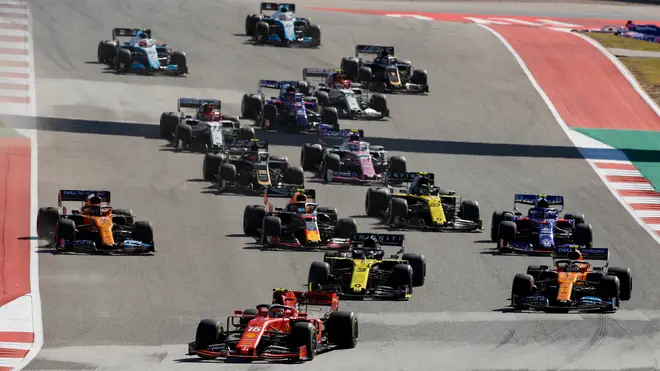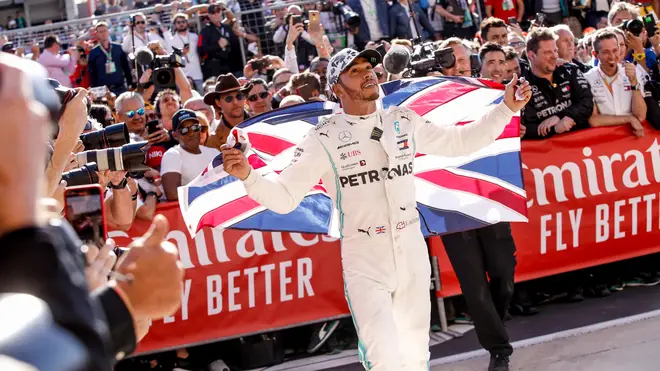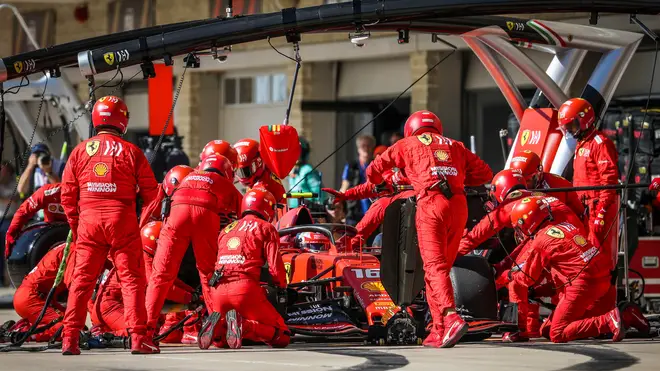
Clare Foges 6pm - 9pm
12 November 2019, 08:13

Formula One has announced ambitious plans to slash its net-carbon footprint to zero by 2030, as well as eliminating waste by 2025.
The globe-trotting motorsport, which will visit a record 22 countries next year, is convinced it can cut emissions despite plans to increase the calendar to 25 races in the next decade.
The initiative - developed by governing body the FIA, teams and other stakeholders – will cover cars, on-track activity and other operations including logistics and travel.
There are also plans for offices, facilities and factories to be 100 per cent powered by renewable energy sources.
Formula 1® announces plan to be Net Zero Carbon by 2030 pic.twitter.com/IYt7Kf5mzf
— F1 Media (@F1Media) November 12, 2019
The key to the strategy is a net-zero carbon hybrid power unit, with F1 hybrid power units already the most efficient in the world.
Chase Carey, chairman and chief executive of Formula One, said: "Few people know that the current F1 hybrid power unit is the most efficient in the world, delivering more power using less fuel, and hence CO2, than any other car.
"We believe F1 can continue to be a leader for the auto industry, and work with the energy and automotive sector, to deliver the world's first net-zero carbon hybrid internal combustion engine that hugely reduces carbon emissions around the world.
"In launching F1's first-ever sustainability strategy, we recognise the critical role that all organisations must play in tackling this global issue.
"By leveraging the immense talent, passion and drive for innovation held by all members of the F1 community, we hope to make a significant positive impact on the environment and communities in which we operate."

F1 has long innovated to become more environmentally friendly, with team-developed innovations benefitting the wider car industry.
By 2025, F1 will use sustainable materials at all events, with single-use plastics being eliminated and all waste reused, recycled or composted.
The sport will also provide incentives to offer every fan a greener way to reach the race, and ensure circuits and facilities enhance fan wellbeing and nature, as well as providing opportunities for local people, businesses and causes to get more involved in the action during a race weekend.
Six-time world champion Lewis Hamilton has long promoted sustainability, selling his private jet and adopting a plant-based diet.
He has also aimed to make his own life carbon neutral, telling reporters: “I don't allow anyone in my office, but also within my household to buy any plastics, I want everything recyclable, down to deodorant and toothbrushes.
"I sold my plane over a year ago. I fly a lot less now. I'm trying to fly less through the year, I'm mostly flying commercial, so that's been a big change in my habits.

“I've avoided trips if I didn't need to do it. I have just been in the UK with family in Bedfordshire instead of going on holiday.
"I've changed my diet, which is quite a drastic difference. I also have a new electric Smart car and have sold several of my cars.
"I'm constantly making changes but it's not a quick fix but I feel positive that I'm making those changes, and I'm encouraging people around me.”
Following Tuesday’s announcement, FIA president Jean Todt said: "Our commitment to global environmental protection is crucial.
"It is not only very encouraging for the future of motor sport, but it could also have strong benefits for society as a whole.
"With the involvement of the teams, drivers, F1's numerous stakeholders, and crucially the millions of fans around the world, the FIA and Formula One are committed to driving development and ensuring motor sport grows as a laboratory for environmentally beneficial innovations."